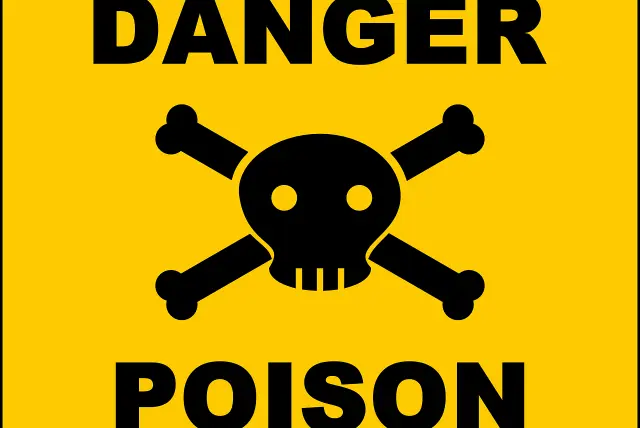Wolves are fascinating creatures that have long been studied by humans. They are carnivorous animals and feed on meat, bones, and other animal products.
However, humans are often tempted to share their food with these animals, and one question that often comes up is whether or not wolves can eat chocolate.
In this article, we will discuss whether or not wolves can eat chocolate and the potential risks associated with feeding them this human food.
Is Chocolate Toxic to Wolves?
Now it depends on wolves/wolf if they bother eating chocolate or not. Maybe they will recognize it as food. If wolves consume 70 ounces of milk chocolate with bodyweight 100 pounds, possibly they can die.

Dogs and Wolves/Wolfs, among other canids, had a more severe reaction to the toxin compared to other types of animals. It’s thought that this increased toxicity is due to a unique chemical in their system.
The outcome may depend on three factors
- The amount ingested
- Type of chocolate
- The size of the wolf
The toxin not only affects canids the most, but also harms other animals including cats, birds, bears, and rodents.
Chocolate has the same effect on coyotes too. They also lack the digestive mechanism to digest theobromine and caffeine.
These ingredients are tested against pest coyotes by USDA. According to USDA national wildlife research centre, Coffee-Derived Methylxanthines is toxic to coyotes.
These mechanisms were tested by COD (coyote lure operative device). Every coyote died after eating this proportion of CLOD.
Tests of chocolate components on coyotes resulted in selective, effective, and socially acceptable toxicants for the control of coyotes.
Wolf Digestive System
Wolves have a digestive system that is well-adapted to digesting meat and other animal products. However, their digestive system is different from that of dogs, and they are not able to digest some foods that dogs can.
Theobromine is broken down by the liver, and wolves have a liver that is adapted to process high levels of protein and fat. Therefore, wolves may be able to process theobromine more efficiently than dogs, but this does not mean that they are immune to the toxic effects of chocolate.
Chocolate Components
Chocolates have a very good impact on human health. There is a difference between the digestive system of wolves and humans.
According to Healthline fifty grams of dark chocolate contain 19 Milligrams of caffeine and 250 milligrams of theobromine.
If you contact your veterinarian, he will tell you that chocolate is harmful to your pet animals like a dog or cat.
The reason behind this is that animals absorb Theobromine slowly as compared to humans.
The amount of theobromine in different types of chocolate
- Cacao beans: 330-1500 mg/oz
- Cocoa powder: 400-740 mg/oz
- Baking chocolate: 392-450 mg/oz.
- Dark chocolate: 135 mg/oz
- White chocolate: 0.24 mg/oz.
Symptoms of Poisoning

The initial symptoms of poisoning can occur rapidly, within a short timeframe of 1 to 3 hours.
Although the signs can persist for a period of a few hours to 72 hours, typical early symptoms include throwing up and having loose bowel movements.
Other indications of toxicity may include:
- Feeling sick to your stomach
- Feeling tired
- Having seizures
- Urinating more frequently
- Feeling thirsty
- Having a higher body temperature
- Faster heart rate
- Narrowed blood vessels
- Impact on central nervous system
Other Poisonous Foods for Wolves/Wolfs
In addition to chocolate, there are other types of food that can be toxic and fatal to wolves. Many of these foods are commonly consumed by humans.
These human foods can be harmful to both wolves and dogs if they consume them.
Other foods that are poisonous to wolves are:
Raisins and grapes
These fruits contain a toxic compound called oxalates, which can accumulate in the kidneys and cause damage leading to kidney issues, such as renal failure. Even small amounts can be dangerous, especially to smaller dogs or puppies.
Onions and garlic
Both of these vegetables contain compounds that can damage the red blood cells of wolves and dogs, leading to anemia, especially if consumed in large amounts or over an extended period of time.
Alcohol
Any form of alcohol can be fatal for wolves and dogs. It can cause severe liver and brain damage, respiratory failure, and even death.
Xylitol
This artificial sweetener is highly toxic to dogs and wolves, and it can be found in products such as gum, candy, and some diet foods.
Consuming products containing Xylitol can lead to a rapid insulin release, resulting in hypoglycemia, seizures, liver failure and in some cases death.
Related: 350+ Powerful Wolf Names & Meanings
Final Words
Wolves should not be fed chocolate. Although their digestive system may be able to process theobromine more efficiently than dogs, this does not mean that they are immune to its toxic effects.
Theobromine can cause a range of symptoms in wolves, and even small amounts of chocolate can be harmful. Wolves should be fed a diet that is appropriate for their species, and humans should not attempt to feed them human foods.
It is important to respect wolves as wild animals and allow them to maintain their natural diet in the wild.
Note: For the purposes of this article, “chocolate” refers to the chocolate products commonly consumed by humans and does not include specialized dog or animal chocolate products. It is important to note that wild animals, including wolves, should never be fed by humans and should maintain their natural diet in the wild.
